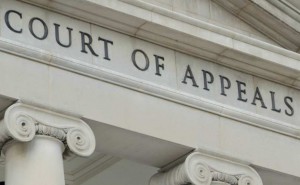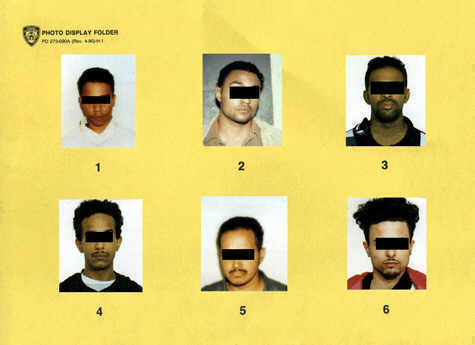Cross-Racial Identification Jury Charge Must be Granted when Identifying Witness is Different Race than Defendant
People v. Boone
New York Court of Appeals
2017 NY Slip 08713
Decided on December 14, 2017
Issue: Whether a defendant is entitled, upon request, to a cross-racial identification charge to the jury when identification is an issue and the identifying witness and the defendant are of different races.

Holding: The New York Court of Appeals held that trial courts must charge cross-racial identification to the jury at the defendant’s request when identification is at issue and the identifying witness appears to be of a different race than the defendant.
Facts: In 2011, a white man was approached in Brooklyn by a man who stole his phone and ran away after asking the victim for the time. The victim described the attacker as an African-American man and gave officers other details about the perpetrator’s appearance. Ten days later, a white teenager was walking in the same neighborhood when he was approached by a stranger. This stranger similarly asked the young man what time it was and attempted to grab the teenager’s phone. When the teenager did not let go, the man stabbed him, and he took the phone and ran away. The victim described the attacker as an African-American man and gave a description of his appearance to police officers.
The defendant is a black man whose features matched the descriptions given by the two victims. Both victims separately identified the defendant in a line-up, although the teenager was initially uncertain whether the defendant was the attacker. There was no physical evidence connecting the defendant to the attacks but, nevertheless, a jury convicted the defendant of the two counts of robbery.

At trial, defense counsel requested that the jury be instructed on cross-racial identification, which was denied on the basis that there was no expert witness testimony or cross-examination on the “lack of reliability of cross-racial identification.” On appeal, the defendant argued thatthe trial court denied him his due process right to a fair trial when by refusing to charge the jury on the accuracy of cross-identification. The Appellate Division held that the trial court made no error is refusing to give the charge because the defendant did not “place the issue in evidence.”
Analysis: “Mistaken identifications are the single greatest cause of wrongful convictions in this country,” the Court of Appeals stated, citing State v. Delgado, 188 NY 48, 60 (2006). Pointing to a recent report by the National Academy of Sciences, the Court noted that misidentifications by a single eyewitness play a role in most post-conviction DNA-based exonerations in the United States. An astounding 71% of DNA exonerations in the U.S. involve eyewitness misidentification, according to The Innocence Project.
Several tests conducted by social scientists have revealed that people generally have a significantly more difficult time identifying individuals of other races from their own. This phenomenon, called the “cross-race effect,” is generally accepted by eyewitness identification experts and acknowledged by trial courts in New York. However, many jurors are either uninformed or misinformed about this phenomenon. In light of the disparity, the Court of Appeals now emphasizes the importance of a cross-racial identification charge and how such charges should be given.
Holding that “expert testimony on the cross-race effect is not a precondition of a jury charge on the subject” nor does it serve a substitute for the charge, the Court of Appeals rejected the lower court’s rationale in the present case that a cross-racial identification charge was unwarranted just because there was no such expert testimony. Expert testimony can help jurors clarify beliefs they might already have on the cross-race effect by explaining the studies on a technical and scientific level, but such testimony does not render a cross-race charge superfluous.
Second, the Court of Appeals held that the lower court erred in assuming that a cross-racial identification charge should be predicated on whether defense counsel cross-examined the People’s witnesses about their identifications. Because eyewitnesses are “often utterly confident about an identification” and “think they are telling the truth even when their testimony is inaccurate,” cross-examination would not reveal a dishonest demeanor and, thus, would likely not change the perspective of the identification of the jury.
Other state courts have handled this cross-identification issue as follows:
Alabama
Alabama has not yet considered this issue on cross-racial identification jury instruction.
Alaska
In Young v. State, 374 P.3d 395 (2016), the court noted the fallibility of witness identifications and ask for new criminal jury instructions to be created that better reflect identifications. This court considered “race and ethnicity bias” as an important factor among many other things such as how well the defendant was described, environmental conditions, duration of view, stress, and more.
Arizona
In State v. Rodriguez, 2008 WL 2175256 (2008), the court held that cross-racial jury instruction was not necessary and within the discretion of the trial court. This court held that an identification charge already covers all that generally needs to be said. The court goes so far as to say that Arizona appeals courts have rejected jury instructions that go too far when the general instruction is already adequate.
Arkansas
In Lenoir v. State, 77 Ark. App. 250 (2002), the court held that a cross-racial identification charge is not necessary and that the jury does not need to hear the charge in order to weigh the evidence and credibility of witnesses. This court reasoned that since there is no binding authority to support the position, it is unnecessary for the court to consider the charge.
California
In People v. Patterson, 2002 WL 368620 (2002), the court concluded that a cross-racial identification charge is not warranted and may invade the domain of the jury, requiring the jury to follow a particular psychological theory relating to the reliability of eyewitness identifications.
Colorado
In People v. Singley, 2015 WL 3776519 (2015), the court held that a trial court does not abuse its discretion so long as it gives an adequate general credibility instruction, so no cross-racial identification charge is required.
Connecticut
In State v. Wiggin, 74 Conn.App. 703 (2003), the court held that cross-racial identification jury instruction is not required and that cross-examination and closing statements are enough.
Delaware
In Garden v. State, 815 A.2d 327 (2003), the court held that cross-racial identification jury instruction was not required specifically in that case, but the court refused to decide whether the charge may be necessary in other circumstances. However, the court noted that a jury instruction on cross-racial identification may come close to commenting on the evidence and would, therefore, be unconstitutional.
D.C.
In Patterson v. U.S., 37 A.3d 230 (2012), the court held that standard jury instruction provides the jury with “all the guidance it needs to be able to determine the accuracy and reliability of eyewitness identification” and a cross-racial jury charge could give undue weight to the expert witness and could come close to commenting on the evidence.
Florida
In McMullen v. State, 714 So.2d 368 (1998), the court doesn’t mention jury instruction but it’s the closest case to the issue. An expert witness who would testify as to cross-racial identifications is admissible subject to the trial judge’s discretion.
Georgia
In Wallace v. State, 306 Ga.App. 118 (2010), the court held that a cross-racial identification jury charge is not warranted in light of corroborating evidence and because a general identification charge is sufficient.
Hawaii
In State v. Cabagbag, 127 Hawai’I 302 (2012), the court held that a standard jury instruction is sufficient. However, where eyewitness testimony is an important point, there is already a “more complete” jury instruction regarding eyewitness testimony which includes an explanation of cross-racial bias.
Idaho
In State v. Wright, 147 Idaho 150 (2009), the court held that a jury charge on cross-racial identification is not necessary but, if properly requested, can be given subject to the discretion of the trial judge.
Illinois
So far, there are no cases on cross-racial identification jury instruction in Illinois. However, in People v. Lerma, 2016 IL 118496 (2016), the court held that it was reversible error to deny a defendant’s request regarding expert testimony of cross-racial bias.
Indiana
In Miller v. State, 759 N.E.2d 680 (2001), the court held that a cross-racial identification jury charge is only warranted when there is a showing of a specific risk that the witness may have been mistaken due to cross-racial factors.
Iowa
In State v. Williams, 2000 WL 1827168 (2000), the court held that the decision lies within the discretion of the trial judge whether to give cross-racial identification jury instruction and that it was not necessary.
Kansas
In State v. Carr, 300 Kan. 1 (2014), it is within the discretion of the trial judge to give an expanded, cross-racial identification jury charge. However, expert witness testimony cannot be automatically excluded.
Kentucky
Kentucky has not addressed the issue regarding jury instruction on cross-racial identification. However, in Com. v. Christie, 98 S.W.3d 485 (2002), the court held that expert witness testimony regarding cross-racial bias should be admitted if the defendant attempts to get it in.
Louisiana
Louisiana has not yet considered this issue on cross-racial identification jury instruction.
Maine
In State v. Mahmoud, 147 A.3d 833 (2016), the court held that cross-racial jury instruction is not necessary but can be used in situations where it would be proper, subject to the discretion of the trial judge.
Maryland
In Janey v. State, 166 Md.App. 645 (2006), the court held that cross-racial identification was not necessary in that case because the identifying witness had commented on that fact that he was “not good at identifying African Americans.” The jury charge could be utilized in closing arguments rather than as part of the charging process. However, the court noted that there may be times when it would be proper to give the jury charge.
Massachusetts
In Com. v. Bastaldo, 472 Mass. 16 (2015), this Massachusettes court held that a cross-racial identification charge should be given unless all parties agree there is no cross-racial identification issue.
Michigan
In People v. Johnson, 2003 WL 21465289 (2003), the court held that there is no authority to show that a cross-racial identification instruction is required in Michigan.
Minnesota
In State v. Thomas, 890 N.W.2d 413 (2017), the court held that a cross-racial identification jury charge is not required in any circumstance at the moment. The defendant in that case was also precluded from bringing in an expert witness to testify about cross-racial identification.
Mississippi
In Howell v. State, 860 So.2d 704 (2003), the court held that a cross-racial identification jury charge is not required in this case because there was other evidence corroborating the identification and the jury was properly instructed on how to weigh credibility.
Missouri
Missouri has not yet made conclusions regarding cross-racial identification jury instruction, but in State v. Lawhorn, 762 S.W.2d 820 (1988), the court did consider whether an expert witness could testify about cross-racial bias. This court determined that an expert witness could not testify since jurors have common experience on such matters and don’t need expert witness testimony.
Montana
In State v. Zlahn, 332 P.3d 247 (2014), the court held that jury instruction is not necessary but noted that, in that particular case, it was not a “pure eyewitness identification case,” indicating the result may be different in that scenario.
Nebraska
In State v. Jones, 293 Neb. 452 (2016), the court considered cross-racial instruction but noted that, in that case, there was no evidence of the witness being of a different race from the defendant, so there was no need for it.
Nevada
While Nevada courts have not decided on the issue of cross-racial identification instruction, in White v. States, 112 Nev 1261 (1996), the court held that, when an expert witness comes in to testify about cross-racial bias, it is subject to the discretion of the trial judge.
New Hampshire
In State v. Addison, 160 N.H. 792 (2010), the court held that no such jury instruction is necessary and that it’s always up to the discretion of the trial judge.
New Jersey
In State v. Cromedy, 158 N.J. 112 (1999), the court held that it is reversible error when a judge refuses to submit defendant’s request jury charge of cross-racial identification when identification was a critical issue in the case and an eye witness’s testimony is not corroborated. State v. Henderson, 208 N.J. 208 (2011) abrogates Cromedy and holds that a cross-racial identification jury instruction should be given any time cross-racial identification is an issue at trial. Out of all the states, this New Jersey holding is closest to the Court of Appeals’ Boone holding.
New Mexico
New Mexico has not yet considered this issue on cross-racial identification jury instruction.
North Carolina
In State v. Watlington, 234 N.C.App. 580 (2014), the court held that pattern jury instructions are sufficient and that there is no need to implement a cross-racial identification jury instruction.
North Dakota
North Dakota has not yet considered this issue on cross-racial identification jury instruction.
Ohio
In State v. Torres, 2013 WL 6047869 (2013), the court held that the evidence wasn’t only a racial-bias identification and, therefore, failure to add in a racial-bias jury instruction was not reversible error.
Oklahoma
In Nave v. State, 808 P.2d 991 (1991), the court never considered a jury instruction but dealt with a defendant arguing that cross-racial identification is inherently unreliable and should be suppressed. The argument was rejected.
Oregon
In State v. Lawson, 352 Or. 724 (2012), the court did not consider the jury instruction but noted the importance of informing jurors of cross-racial bias.
Pennsylvania
In Com. v. Walker, 625 Pa. 450 (2014), the court did not consider a jury instruction but allowed expert witness testimony as to cross-racial bias.
Rhode Island
In State v. Hadrick, 523 A.2d 441 (1987), the court held that cross-racial jury instruction is not only not required, but it would be an improper addition because it is a commentary on the evidence.
South Carolina
In State v. Whaley, 305 S.C. 138 (1991), the court did not consider a jury instruction but allowed expert witness testimony as to cross-racial bias. A lower court, the Court of Appeals of South Carolina, in State v. Green, 412 S.C. 65 (2015) held that a judge did not err when using his discretion to refuse to add a racial bias jury instruction.
South Dakota
In State v. Doap Deng Chuol, 849 N.W.2d 255 (2014), the court held that jury instruction about cross-racial identification is not required when the standard charge is adequate.
Tennessee
In State v. Copeland, 226 S.W.3d 287 (2007), the court held that the trial court erred in prohibiting expert witness testimony about cross-racial identifications. This court, however, did not consider a jury instruction.
Texas
In Tillman v. State, 354 S.W.3d 425 (2011), the court held that expert witness testimony on cross-racial identification is admissible, but the court did not consider jury instructions.
Utah
In State v. Clopten, 223 P.3d 1103 (2009), the court held that expert witness testimony on cross-racial identification is admissible, but it did not consider jury instructions.
Vermont
Vermont has not yet considered this issue on cross-racial identification jury instruction.
Virginia
In Payne v. Com., 65 Va.App. 194 (2015), the court refused to consider the issue of cross-racial identification jury instructions because, in this case, there was no evidence that the witness was a different race from the defendant.
Washington
In State v. Allen, 176 Wash.2d 611 (2013) the court held that cross-racial identification jury instruction is not required. This court determined that cross-examination and closing statements were enough in this specific case because there were specific identifying factors in this case unrelated to cross-race bias.
West Virginia
West Virginia has not yet considered this issue on cross-racial identification jury instruction.
Wisconsin
In State v. Montemayor, 266 Wis.2d 694 (2003), the defendant argued ineffective assistance due to his trial attorney not asking for a cross-racial jury instruction. The court held that counsel was not ineffective, especially in light of the fact that the witness was a police officer who was familiar with the defendant specifically.
Wyoming
Wyoming has not yet considered this issue on cross-racial identification jury instruction.
In addition to State Courts the Circuit Courts of Appeals, as well as the Court of Military Appeals, have also touched on the issue of cross-racial identification jury instruction:
Court of Military Appeals
In U.S. v. Thompson, 31 M.J. 125 (1990), the court held that cross-racial identification is only necessary when defense counsel requests the instruction and cross-racial identification is a primary issue in the case. The fact that a witness is a different race from the defendant is not enough, the court determined. In this case, the witness watched the defendant for ten minutes, identified her stolen purse, and had no difficulty in distinguishing the defendant from other young black men with same physical build and complexion.
First Circuit
In U.S. v. Jones, 689 F.3d 12 (2012), the First Circuit held that the decision to add cross-racial bias into jury instructions was within the discretion of the trial judge.
Second Circuit
Although the Second Circuit notes the existence of cross-racial bias, the Second Circuit currently has no cases regarding cross-racial bias in jury instructions.
Third Circuit
In U.S. v. Brownlee, 454 F.3d 131 (2006), the Third Circuit addresses the admissibility of expert witness testimony into cross-racial bias but made no determination as to jury instructions.
Fourth Circuit
The Fourth Circuit has not yet considered this issue on cross-racial identification jury instruction.
Fifth Circuit
In Gonzales v. Thaler, 643 F.3d 425 (2011), the Fifth Circuit Noted that scientific studies have shown cross-racial identifications as inherently unreliable but it did not discuss the use of jury instructions or expert witness testimony.
Sixth Circuit
In U.S. v. Washam, 468 Fed.Appx. 568 (2012), the Sixth Circuit held that in this case, the District Court did not abuse its discretion by refusing to instruct jury that cross-racial identifications are inherently suspect. However, the court stated the Sixth Circuit rule as “jury instructions regarding eyewitness identifications are within the discretion of the trial court, and special instructions need only be given if there is a danger of misidentification due to a lack of corroborating evidence.”
Seventh Circuit
In U.S. v. Hudson, 884 F.2d 1016 (1989), the Seventh Circuit held that expert witness testimony as to cross-racial bias is unnecessary and properly excluded because it does not assist the trier of fact because it is an issue of which the jury is already generally aware. This was affirmed again ten years later in U.S. v. Hall, 165 F.3d 1095 (1999).
Eighth Circuit
In U.S. v. Bowman, 907 F.2d 63 (1990), the Eighth Circuit held that there was no abuse of discretion when a judge excludes testimony of an expert concerning the unreliability of cross-racial identification.
Ninth Circuit
In U.S. v. Strode, 229 F.3d 1161 (2000), the Ninth Circuit determined that the trial court did not err in denying defendant’s request for jury instructions regarding cross-racial bias.
Tenth Circuit
In U.S. v. Rodriguez-Felix, 450 F.3d 1117 (2006), the Tenth Circuit held that expert witness testimony regarding cross-racial bias is not per se excludible.
Eleventh Circuit
In U.S. v. Mariano, 636 Fed.Appx. 532 (2016), the court held that the District Court did not err in refusing to provide a jury instruction on cross-racial bias. The Court noted that “no evidence adduced at trial related to the ability of a witness to make a cross-racial identification” and therefore the defendant failed to adduce a sufficient evidentiary basis for the instruction.
The Supreme Court of the United States has not yet decided on this issue.

